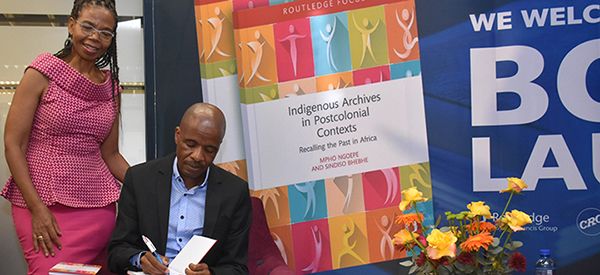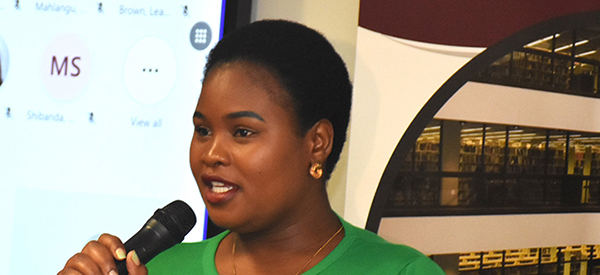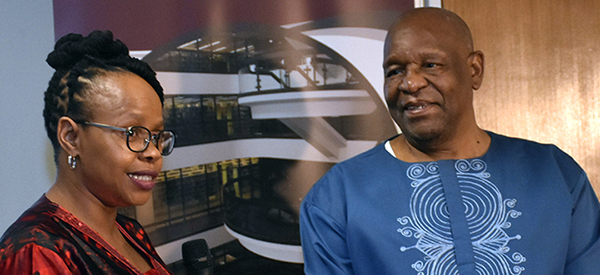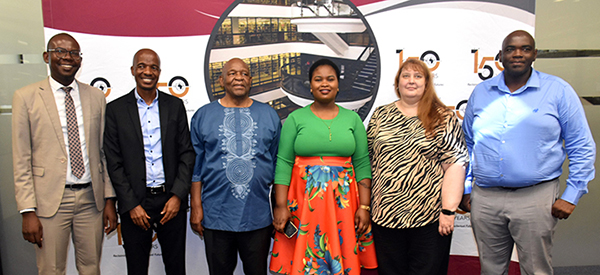Unisa Celebrates South African Library Week with Book Launch Event
Prominent dignitaries graced the event in person and virtually, including Charlie Molepo, the incoming president of the Library and Information Association of South Africa; Maite Manganye from the South African Society of Archivists; Prof Mathole Motshekga, the keynote speaker and former Gauteng Premier and Chief Whip in Parliament; Prof Thenjiwe Meyiwa, the Vice-Principal for Research, Postgraduate Studies, Innovation and Commercialisation; Prof Zethu Nkosi, the Executive Dean of the College of Human Sciences; and Prof Lorette Jacobs, the Chair of the Department of Information Science at Unisa.

Segametsi Molawa and Prof Mpho Ngoepe
Celebration of South African Library Week
South African Library Week is a flagship event launched in 2010 to address the deficiencies identified by the Library and Information Association of South Africa (LIASA). Segametsi Molawa, Director: Information Resource Distribution, said information and knowledge sectors commemorate the week by raising awareness about the value of information. Molepo was pleased that SALW was celebrated this year by adding a new book to library collections. The book is set to expand knowledge on issues related to decolonisation and re-Africanisation.
The book’s central purpose is to explore memory, murals and rock art paintings as archives. The public can use it as a guide for tracking their ancestry and history utilising family praises. It also serves as a platform for future discussion about the decolonisation and (re)Africanisation of archives. As identified in the book, archives imply that African epistemology should be used to offer answers to large-scale social concerns.
Navigating indigenous archive narratives
Manganye underscored the book’s pivotal role in bridging gaps within African epistemology. Her address emphasised the importance of the book in reshaping perspectives and addressing critical aspects of knowledge transformation within the African context. Meanwhile, Motshekga delivered a profound keynote address that emphasised the imperative to uphold human rights, foster the African renaissance and embrace decoloniality in the context of African archives. His address resonated strongly with preserving indigenous archives to safeguard hidden memories and rectify historical narratives through an African perspective. He viewed the book as a catalyst for moral rejuvenation, particularly in highlighting indigenous archives’ significance.

Maite Manganye
Prof Dikotla Maoka stated that for the archives to be decolonised and considered, it is necessary to align the concept of indigenous archives with Eurocentric epistemological frameworks. “This is because these indigenous archives should be mainstreamed together with the Eurocentric approach to archives, and people need to realise that murals, orality and rock art painting are archives,” he said.
Dr Tshepho Mosweu added that the writers believe that Africanology has been destroyed and that the book provides solutions to such a problem through formations known as counter archives. She also recommended the digital utilisation of advanced tools like COPYNET for efficient document management within archival settings.

Prof Thenjiwe Meyiwa and Prof Mathole Motshega
The event culminated with Meyiwa conveying her heartfelt appreciation to all those who contributed to the meticulously planned programme for the event while also acknowledging the pivotal role of the book in championing the cause of indigenous archives.

